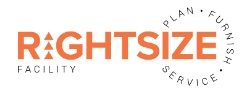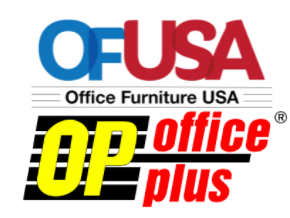Most Common Reasons why a Company Relocates
If your company is considering whether to relocate or stay put, have a read of some of the most common reasons why companies end up relocating to help you make an informed decision.
Expansion & Growth
The main reason why a company chooses to relocate is because their current facility no longer has enough space to meet their requirements. Any future office space consideration needs to factor in enough room for company growth and expansion. This will ensure you don't outgrow the space before the lease expires. Use this handy Office Space Calculator to give you a clear indication about how much office space you need.
Reduce Costs
The need to lower operational costs is also a common reason why many companies have to relocate. With office rent being one of the highest costs for a business, it's important to ensure you have the financial viability to afford the rent for the duration of the lease. Use the Office Move Budget Planner to help calculate your costs and find out how much rent you can realistically afford.
Consolidating Offices
Some companies just have more facilities and space than they really need, so there's no point in renewing the lease if you have surplus space that you're not going to fill. Consolidating to smaller offices can improve your productivity and raise staff morale: there's nothing worse than working in an office that's half empty.
Lease Renewal & Expiration
A simple renewal or expiration of an office lease means that company's get to review their options, compare the market and seek the most competitive deal there is.
Access to New Markets
If a company is striving to attract new markets it may be necessary to relocate to a different location to be nearer prospects, clients or even a new talent pool of potential employees. Speak to your Tenant Rep Broker about targeting specific locations and ask for a breakdown of the rents being achieved to give you a better idea of your budget.
Reorganization or Better Facilities
Companies often find that their current office facilities are too outdated to carry out their tasks efficiently, or they wish to give their company a new image by moving to more modernized facilities. Moving to an office with better facilities can dramatically improve your company image, allow for more space, and improve productivity.
To help you find an office that meets all your requirements, use the Office Space Checklist. It's an invaluable guide that helps you plan your office space requirements, as well as determine whether an office really matches your needs.
Planning an office move? Go the office relocation planning resource center
-
Start Planning Your Office Move
Wherever you are in your office move process Help Moving Office has the information you need to plan your office move properly.
Start Planning -
Access The Resource Center
With over 15 guides, checklists, tools & calculators the Resource Center has everything you need to plan, organize & manage a successful office move.
See Resources -
Office Relocation Services Directory
Looking for the right companies for your office move? Connect with independently sourced and pre-qualified vendors that are experts in your local market.
The Directory
Latest Tips
-
Creating a Stylish Office with Second-Hand Conference Tables
In today's business world, creating a stylish and functional office space doesn't have to break the bank. One of the smartest and most sustainable choices you can make is to invest in budget office furniture, specifically second-hand conference tables. Not only do they provide a professional look and feel, but they also come at a fraction of the cost of new furniture. Here’s how you can transform your office space with second-hand conference tables and where to find the best deals
Read Article -
Embracing the Spirit of Connection: Workplace Trends and the Paris 2024 Olympics
As we anticipate the 2024 Paris Olympics, a celebration of unity, excellence, and the indomitable human spirit, it's fascinating to observe how these themes resonate with the evolving dynamics of today's workplace.
Read Article -
OFUSA Moving Services
Moving office furniture in Las Vegas requires prec...
Read Article






